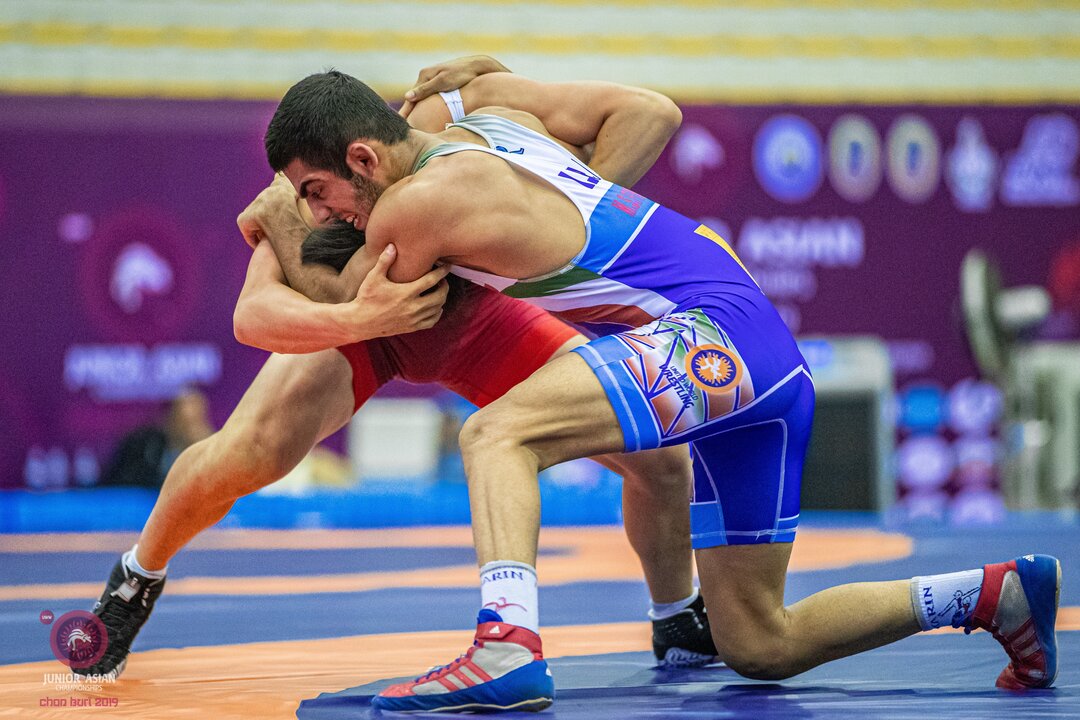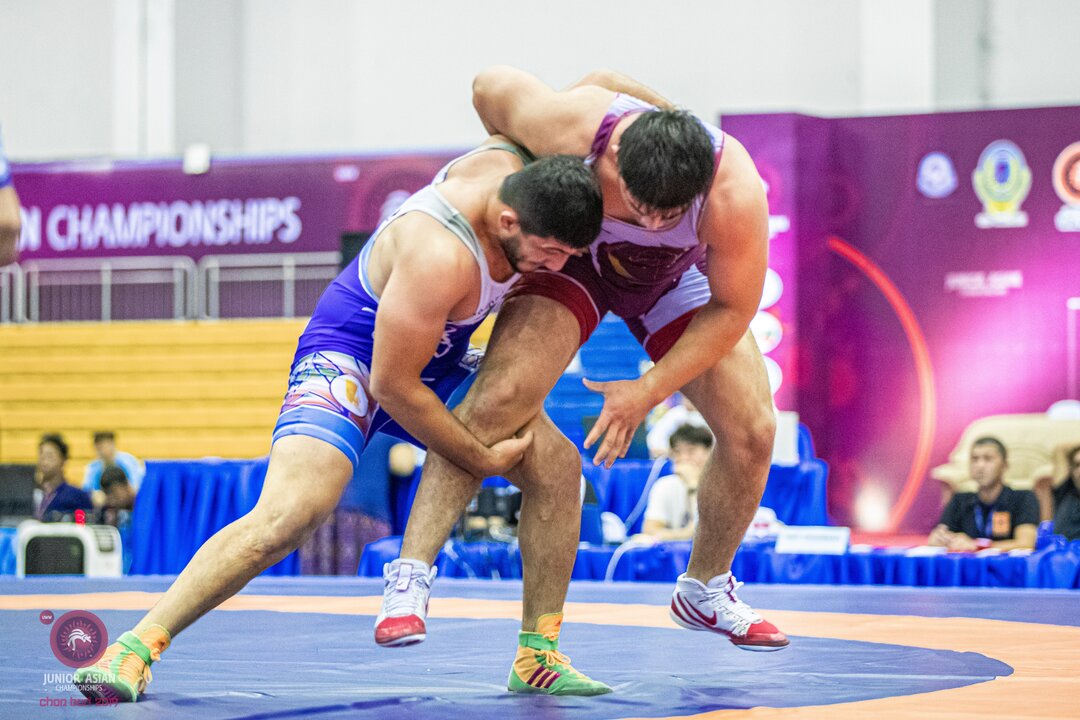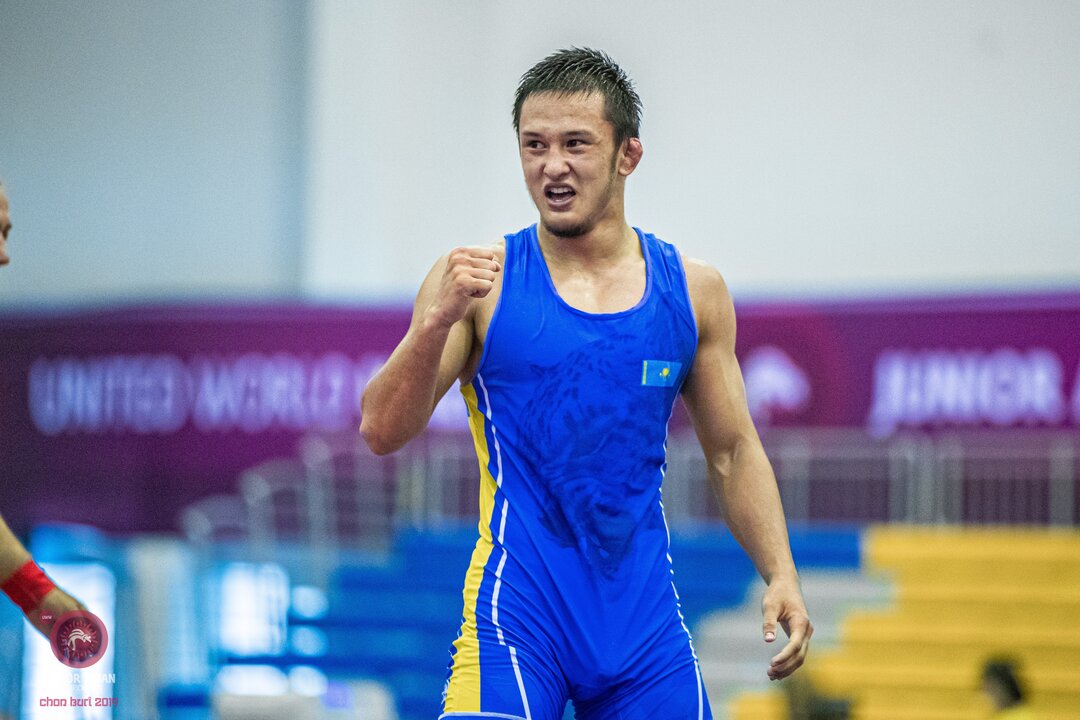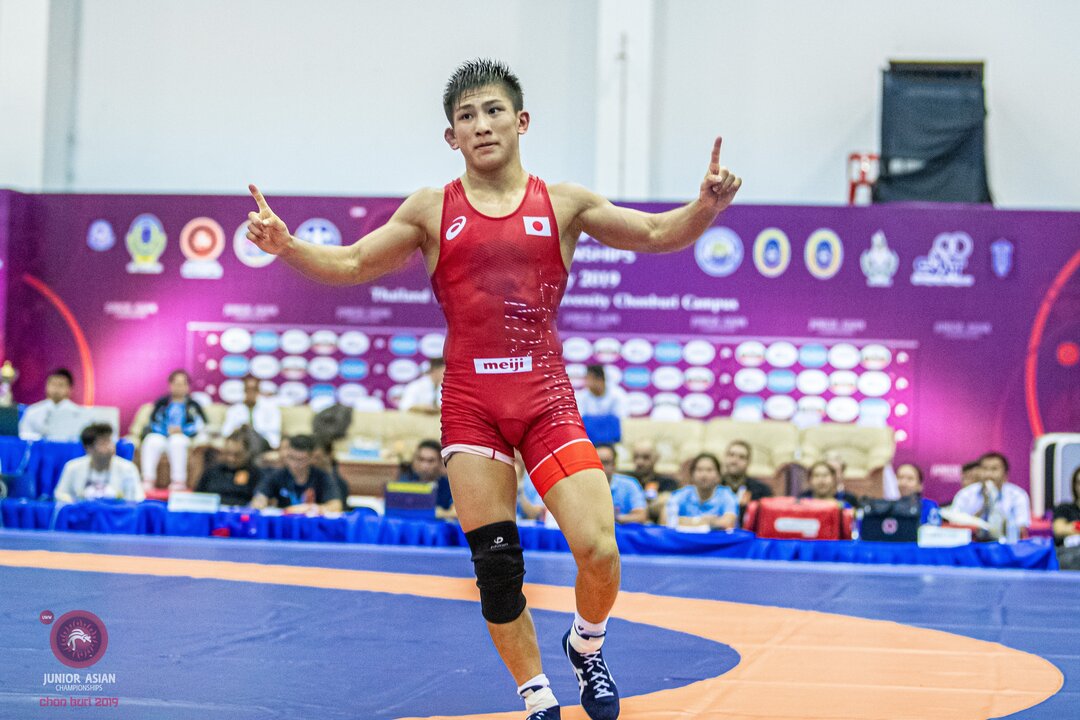Iran Collects 3 Freestyle Golds on Saturday at Junior Asian C'ships
Saturday, July 13, 2019 - 17:17 By United World Wrestling Press

CHON BURI, Thailand (July 13) - Iran started the freestyle competition at the Junior Asian Championships with a bang, collecting three of the five gold medals on Saturday.
Earlier in the week, Iran ran away with the team title in Greco-Roman on the strength of seven champions. Now the Iranians are in prime position to win the freestyle title heading into the final day.
Iran's freestyle gold medalists on Saturday were Mohmmadsadegh FIROUZPOURBANDPEI (70kg), Abdollah SHEIKHAZAMI (79kg) and Alireza REKABI (97kg). Mohmmadsadegh FIROUZPOURBANDPEI (IRI) registered a 10-1 win in the finals. (Photo: Sachiko Hotaka)
Mohmmadsadegh FIROUZPOURBANDPEI (IRI) registered a 10-1 win in the finals. (Photo: Sachiko Hotaka)
Firouzpourbandpei earned his gold medal with a 10-1 victory in the 70kg finals over Sangho HAN (KOR).
Sheikhazami rolled to a 10-0 technical superiority in the finals at 79kg over Tanggesi TANGGESI (CHN). Alireza REKABI (IRI) won by 10-0 technical superiority in the finals at 97kg. (Photo: Sachiko Hotaka)
Alireza REKABI (IRI) won by 10-0 technical superiority in the finals at 97kg. (Photo: Sachiko Hotaka)
Iran's third gold medalist on Saturday, Rekabi, dominated in the finals at 97kg, winning 10-0 over Zyyamuhammet SAPAROV (TKM). Syrbaz TALGAT (KAZ) improved on his silver-medal performance from a year ago. (Photo: Sachiko Hotaka)
Syrbaz TALGAT (KAZ) improved on his silver-medal performance from a year ago. (Photo: Sachiko Hotaka)
Syrbaz TALGAT (KAZ), a returning junior world bronze medalist, earned gold at 65kg after finishing with a silver in last year's Junior Asian Championships.  Yuto TAKESHITA (JPN) finished on top at 57kg. (Photo: Sachiko Hotaka)
Yuto TAKESHITA (JPN) finished on top at 57kg. (Photo: Sachiko Hotaka)
Japan crowned a champion at 57kg as Yuto TAKESHITA topped Vijay Bajirao PATIL 7-4 in the gold-medal match.
The Junior Asian Championships wrap up on Sunday with the final five freestyle weight categories: 61kg, 74kg, 86kg, 92kg and 125kg. Action is set to begin at 10 a.m. local time.
RESULTS
Freestyle
57kg
GOLD - Yuto TAKESHITA (JPN) df. Vijay Bajirao PATIL (IND), 7-4
BRONZE - Hyeonsu CHO (KOR) df. Narankhuu NARMANDAKH (MGL), 14-4
BRONZE - Taiyrbek ZHUMASHBEK UULU (KGZ) df. Abzal OKENOV (KAZ), 6 - 2
65kg
GOLD - Syrbaz TALGAT (KAZ) df. Alireza ASHKIVAR (IRI), 4-4
BRONZE - Bobur ISLOMOV (UZB) df. Sunny SUNNY (IND), 5-4
BRONZE - Taiki TSUTSUMI (JPN) df. Injong HWANG (KOR), 8-1
70kg
GOLD - Mohmmadsadegh FIROUZPOURBANDPEI (IRI) df. Sangho HAN (KOR), 10-1
BRONZE - Ayumu SUZUKI (JPN) df. Vishal KALIRAMANA (IND), 6-3
BRONZE - Mirkamol BESHIMOV (UZB) df. Parinya CHAMNANJAN (THA), FALL
79kg
GOLD - Abdollah SHEIKHAZAMI (IRI) df. Tanggesi TANGGESI (CHN), 10-0
BRONZE - Sandeep Singh MANN (IND) df. Tilek KABYKENOV (KAZ), 13-8
BRONZE - Shoto KANEKO (JPN) df. Daehyun NAM (KOR), INJURY
97kg
GOLD - Alireza REKABI (IRI) df. Zyyamuhammet SAPAROV (TKM), 10-0
BRONZE - Akash ANTIL (IND) df. Reheman RUSIDANMU (CHN), 12-2
BRONZE - Arslanbek TURDUBEKOV (KGZ) df. Haroon ABID (PAK), 12-1



Share your thoughts.
Comments